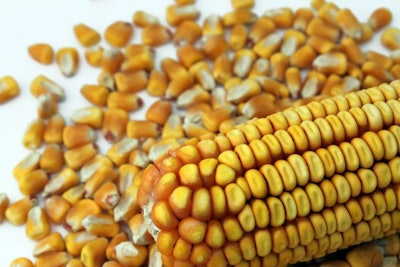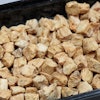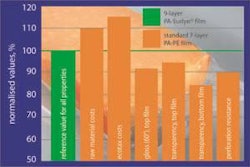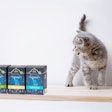
Genetically modified organisms (GMO) don’t hurt pets when GMO ingredients are included in dog and cat food, said Richard Butterwick, global nutrition advisor at the Waltham Centre for Pet Nutrition, during Petfood Forum 2017. However, pet owners increasingly view GMO ingredients in both pet and human food as untrustworthy.
“We know from science that that there’s no specific benefit to pets from having GMO-free cereals,” said Butterwick.
Omitting GMO ingredients doesn’t cause any harm, though, he noted. Since some consumers reject GMOs outright, while others are skeptical, formulators may find marketing benefits from using non-GMO pet food ingredients.
“We can formulate foods that are GMO-free…and are also addressing consumer wants,” he said.
History of GMO foods and criticisms
In the United States, GMO crops processed into food included yellow corn, soybeans and cotton, in the form of cottonseed oil. Companies such as Monsanto and DuPont engineer these plants to contain a pesticide derived from the Bacillus thuringensis bacteria, to resist applications of herbicides (particularly glyphosate, known by the brand name Round-Up) and to have other characteristics.
While many large-scale US commodity crop farms have adopted these GMO plants for economic reasons, some consumers have rejected the health and environmental safety claims about the GMO crops. After conducting research, scientists have suggested that products derived from GMOs are safe, but consumer watchdog groups fire back that leaded gasoline, BPA, red dye No. 2 and trans-fats were once considered safe too. Critics of GMOs also claim corporations and organizations with something to gain funded much of the research on GMOs and glyphosate.
Pet food consumers rejections of GMO ingredients
Beyond what multinational corporations, scientists and watchdog groups say, pet food consumers have their own opinions. In an online survey of 1,500 US dog owners by NUTRO pet food, two thirds (65 percent) of respondents stated that they would opt for non-GMO ingredients for their dog’s food.
Like the other rising natural pet food trends, consumer demand for non-GMO pet food ingredients stems from a belief that these farming techniques are inherently better for the environment, said Maria Lange, business group director of GfK, during Petfood Forum 2017. Likewise, consumers tend to perceive non-GMO pet food ingredients as healthier for their dogs and cats, believing that fewer synthetic pesticides, herbicides or fertilizers are used on non-GMO crops.
In “Pet food ingredients: new documentary examines GMOs,” Debbie Phillips-Donaldson, editor-in-chief of Petfood Industry, explored why pet food consumers may feel this way. She noted that the very fact that scientists are telling the public that GMOs are safe may stir distrust. Many consumers no longer trust science or scientists, at least not when it comes to their own food or pet food.
Petfood Forum 2018
To learn more about controversies surrounding pet food ingredients, attend Petfood Forum 2018. Petfood Forum provides an opportunity for pet food professionals from around the world to network, exchange ideas and do business with one another and with the industry's leading pet food manufacturers and suppliers. Petfood Forum 2018 will take place at the Kansas City Convention Center in Kansas City, Missouri, USA on April 23-25, 2018.



















